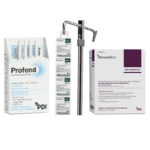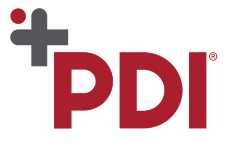Interventional Care


We notice that you are visiting us from . This site only services US-based visitors. Would you like to visit the site that is appropriate for your location?
Does PDI® Lubricating Jelly contain parabens?
Yes. Parabens used in small amounts are commonly found in preservative systems for many medical and pharmaceutical grade products, and common cosmetic products, such as shampoos and conditioners.
Who uses the Profend® Nasal Decolonization Kit?
Perioperative nurses who care for patients prior to surgery and nursing staff in other areas of the hospital,ie. ICU, are the primary users of the Profend Nasal Decolonization Kit. Profend offers unique features valued by clinicians – a preference study showed that over 90% of nurses preferred Profend over other PVP-I nasal antiseptic products.
SOURCE: PDI user acceptance study.
Where is the Profend™ Nasal Decolonization Kit used?
The Profend Nasal Decolonization Kit can be used anywhere in a healthcare facility where there are patients who may be nasally colonized with S. aureus or MRSA and therefore have an elevated risk of developing an SSI or other HAIs.
How is the Profend™ Nasal Decolonization Kit used?
The Profend Nasal Decolonization Kit swabsticks are designed to be applied to the circumference of the patient nostril and anterior nares. Two swabsticks are applied to the nostril for 15 seconds per swabstick. Thus, using 4 swabsticks, total treatment time is 60 seconds.
Does PDI have clinical personnel on staff to answer any clinical questions?
Yes. PDI has a team of Clinical Science Liaisons (CSLs) on staff to help answer questions as well as help facilities identify best practices for improving outcomes and reduce the incidence of Healthcare-associated Infections. CSLs are also available to deliver clinical education, perform clinical assessments, and provide consultation on various infection prevention topics.
Does PDI distribute outside of the United States?
PDI does distribute some products to countries outside of the United States. For more information, please contact Customer Care at 1-800-999-6423.
Where can I find my local PDI Sales Representative’s contact information?
To obtain your local PDI Sales Representative’s contact information, please click the “Customer Care” button and then “How to Buy”. When prompted, enter your facility type and zip code. You can also click on the “Contact” button to have a PDI Representative contact you.
Why is the Prevantics® Device Swab solution beneficial?
By using an antiseptic to disinfect the needleless access site, you are decreasing the risk of the patient acquiring a bloodstream infection (BSI) which can be fatal to the patient. According to the CDC, “Disinfection of the devices with Chlorhexidine /alcohol solution appears to be most effective in reducing colonization”.
How is Prevantics® Device Swab used?
Prevantics Device Swab is designed to disinfect needleless access sites (or to scrub the hub) prior to use as well as in between each line access. Prevantics Device Swab is used to scrub the access site for 5 seconds with drying of the access site for at least 5 seconds.
Where is Prevantics® Device Swab used?
Prevantics Device Swab is used on needleless access sites which include ports, hubs, connectors, dialysis connectors and blood collection applications. These needleless access sites are most commonly found on patients who require an IV (central line, mid-line, or peripheral line).
What is the Profend™ Nasal Decolonization Kit?
The Profend Nasal Decolonization Kit is a pack of four swabsticks that are pre-saturated with 10% (w/w) Povidone-Iodine antiseptic solution and are applied to the nostrils/anterior nares of the nose to proactively defend patients against Staphylococcus aureus (S. aureus), Methicillin-resistant Staphylococcus aureus (MRSA) and other bacteria that can cause Surgical Site Infections (SSIs) and other healthcare-acquired infections (HAIs).
Why is the Profend™ Nasal Decolonization Kit used?
Up to 30 percent of adults are nasally colonized with S. aureus and/or MRSA. S. aureus and MRSA account for over 30% of SSIs. Nasal colonization with these bacteria increases the patient risk of developing an SSI by 9 times. To help reduce this risk, Povidone-Iodine is used as it is a broad spectrum antiseptic that has been proven effective in reducing both S. aureus and MRSA. It offers an added advantage over the widely-used nasal antibiotic, mupirocin, in that there is no known bacterial resistance to it, thereby supporting antibiotic stewardship within the healthcare environment.